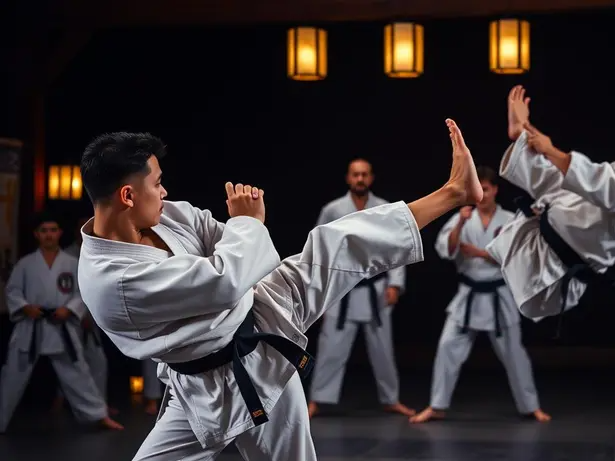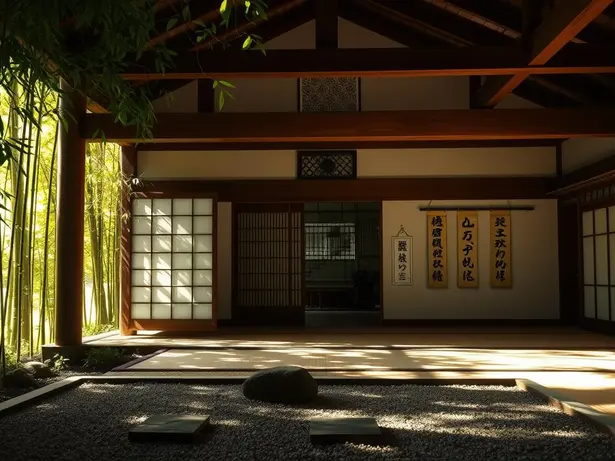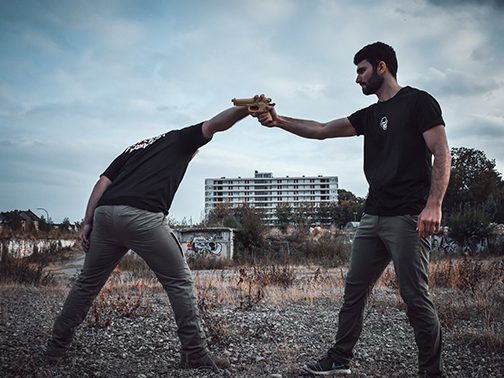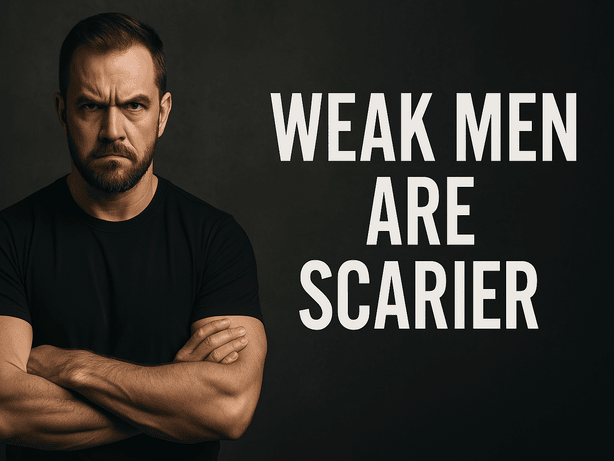Karate Martial Arts: The Basics

Exploring karate martial arts is exciting. It's a centuries-old discipline from Okinawa, Japan. Now, it's loved worldwide for self-defense and fitness.
If you want to learn this ancient art, knowing the basics is key. Karate martial arts boosts physical health and mental focus. To start, look for local karate schools near you. You can find them online.
Key Takeaways
- Karate martial arts is a centuries-old discipline with roots in Okinawa, Japan.
- It offers numerous benefits, including improved physical health and mental discipline.
- Local karate schools can be found through online directories.
- Karate is a versatile martial art suitable for various ages and skill levels.
- Practicing karate can enhance overall well-being and self-confidence.
What Makes Karate Unique Among Martial Arts
Karate comes from Okinawan culture. It mixes physical and mental training. It's more than fighting; it's a way of life with deep philosophy and tough training.
The Philosophy Behind Karate
Karate is based on perseverance, self-control, and self-improvement. It aims to grow your character and skills. The idea of "Do" means a path or journey, not just moves.
Key Principles of Karate Training
Karate training focuses on a few key things:
- Stances (Dachi): These postures help you stay balanced and stable.
- Striking Techniques (Tsuki): Punching methods boost hand-eye coordination and strength.
- Kicking Techniques (Geri): Kicks improve flexibility and power.
Together with kata (forms) and kumite (sparring), it offers a full martial arts training.
The History and Evolution of Karate Martial Arts
Karate's story is complex and fascinating. It has evolved over time, shaped by history and culture. This evolution has made karate what it is today.
Origins in Okinawa
Karate started in Okinawa, Japan. It was influenced by local and Chinese martial arts. Okinawa's culture and geography helped shape early karate.
Okinawan karate focused on self-defense. It was practical and effective.
Spread to Mainland Japan and Worldwide
When karate reached mainland Japan, it changed a lot. It adopted new philosophies and training methods. Japanese martial artists helped spread karate globally.
Now, karate is practiced everywhere. Different styles and ways of training have emerged. The globalization of karate has brought new techniques and methods.
Learning about karate history helps us understand its current practices. It shows how karate has adapted and survived over time.
Different Styles of Karate Martial Arts in the Netherlands
Exploring karate in the Netherlands shows a wide range of karate styles. These include Shotokan, Goju-Ryu, and Wado-Ryu. This variety shows the country's deep martial arts culture and meets different training needs.
The Netherlands has a lively karate community with many styles. Each style has its own training ways and beliefs. As I look into these styles, I learn about the varied world of karate.
Shotokan Karate
Shotokan Karate is a popular karate style worldwide. It's known for strong techniques and deep stances. In the Netherlands, Shotokan Karate attracts both new and experienced learners.
Goju-Ryu Karate
Goju-Ryu Karate mixes hard and soft techniques. It focuses on round movements and breathing. This style aims for total well-being, both physical and mental.
Wado-Ryu Karate
Wado-Ryu Karate values harmony and balance. It uses jujutsu and teaches how to avoid attacks. In the Netherlands, Wado-Ryu Karate is loved for its special self-defense and personal growth methods.
The Netherlands offers a wide range of karate styles. This means learners can find a style that matches their goals and likes. Whether they seek physical challenge, mental focus, or spiritual growth, there's a style for them.
Essential Techniques Every Karate Student Should Master
Karate starts with basic techniques. Every student must learn these. They are key to getting better in karate.
Basic Stances (Dachi)
Basic stances are very important in karate. They help keep balance and build power.
Front Stance, Back Stance, and Horse Stance
The front stance, back stance, and horse stance are basic. Each stance is special and used in many techniques.
How Stances Develop Power and Balance
Stances are not just standing; they are moving. They help build power and balance. Learning stances makes karate better.
Striking Techniques (Tsuki)
Striking techniques are key in karate. They include punches and strikes. You need to be precise and in control.
Kicking Techniques (Geri)
Kicking techniques are also very important. They make you more flexible and balanced. They help you get better in martial arts.
| Technique | Description | Application |
| Front Stance | A stance with one leg in front, used for stability and power. | Used in various punching and kicking techniques. |
| Punching | A basic striking technique using the fist. | Used for offense and defense. |
| Roundhouse Kick | A kicking technique that involves rotating the body. | Effective for targeting opponents at various angles. |
Top Karate Schools in Amsterdam Region
The Amsterdam area has many karate schools. They offer different styles for everyone. Whether you're new or experienced, you'll find a school that's right for you.
Karate School Amsterdam
Karate School Amsterdam is known for its classes for adults and kids. Their teachers teach Shotokan Karate. They focus on technique, discipline, and staying fit.
Shotokan Karate Do Amsterdam
Shotokan Karate Do Amsterdam focuses on the Shotokan style. They have classes for all levels. They help students get stronger physically and mentally.
Goju Kai Amsterdam
Goju Kai Amsterdam teaches Goju-Ryu. It's all about hard and soft techniques. The school is great for learning, with classes for all ages and skills.
These schools are just a few in the Amsterdam area. I suggest checking their websites or trying a class. This way, you can find the perfect school for you.
Best Karate Dojos in Rotterdam, The Hague, and Utrecht
I searched for the best martial arts training and found great karate dojos in Rotterdam, The Hague, and Utrecht. These cities in the Netherlands have a lot to offer. They have top-notch instruction and facilities.
Rotterdam Karate Academy
The Rotterdam Karate Academy stands out for its comprehensive martial arts training programs. It has experienced instructors and a supportive environment for all levels. It combines traditional techniques with modern methods, making it a great choice.
The Hague Karate Center
The Hague Karate Center is known for its expert instruction and wide range of classes. It offers a challenging yet rewarding experience for all levels. The center values community and mutual respect, creating a positive learning space.
Utrecht Traditional Karate School
The Utrecht Traditional Karate School is perfect for those wanting a traditional karate experience. It focuses on preserving martial arts heritage. The school offers a rigorous and authentic training experience, with instructors dedicated to helping students master karate.
Each dojo offers something special for martial arts training in Rotterdam, The Hague, and Utrecht. There's something for everyone.
What to Look for When Choosing a Karate School
Finding the right karate school is important. You need to think about what makes a school good for you. Look at several key factors when choosing.
Instructor Qualifications and Teaching Style
The instructors' qualifications and teaching style matter a lot. Make sure they are experienced and certified. Their teaching style should fit how you learn best.
Certified instructors can teach you better and safer.
Training Facilities and Equipment
The school's facilities and equipment are also key. A clean dojo with good equipment is important. Adequate facilities make training better.
Class Structure and Dojo Atmosphere
The class structure and dojo atmosphere are important too. Classes should fit different skill levels. The dojo should be welcoming and supportive.
Trial Classes and What to Expect
Many schools offer trial classes. These let you see how the school works. You can check if it's right for you.
Questions to Ask Before Joining
Make a list of questions for the instructors or administrators. Ask about their experience, class times, and how you'll be graded. This helps you decide.
Begin Your Karate Journey: Next Steps for Aspiring Martial Artists
Now you know the basics of karate, its history, and styles in the Netherlands. It's time to start your karate journey. Look for a local karate school in places like Amsterdam, Rotterdam, The Hague, or Utrecht.
When picking a karate school, think about the instructor's skills, the facilities, and class setup. Visit schools, watch classes, and talk to teachers. This will help you choose the right one. Get ready for your first class by learning what you need to wear and bring.
Starting your karate journey means being consistent and patient. Karate teaches you more than just moves. It also teaches discipline and self-control. Enjoy the journey, and you'll find karate very rewarding.
FAQ
What is karate martial arts?
Karate comes from Okinawa, Japan. It focuses on punching, kicking, and blocking. It also teaches stances, movements, and mental focus.
What are the different styles of karate?
Popular karate styles include Shotokan, Goju-Ryu, and Wado-Ryu. Each style has its own techniques and philosophy.
How do I find a karate school in my area?
Look online or check websites like https://fightmore.nl/organisations?distance=500&activities=Karate. They list karate schools and organizations.
What should I look for when choosing a karate school?
Look at instructor qualifications and training facilities. Also, check the class structure and dojo atmosphere. This helps find a good school.
What are the benefits of practicing karate?
Karate boosts physical fitness and coordination. It also improves balance and mental focus. Plus, it offers a sense of community and self-discipline.
Do I need prior martial arts experience to start karate?
No, you don't need experience to start karate. Schools for beginners are common. Instructors will teach you the basics.
How often should I train karate?
Training frequency depends on your goals and schedule. Most schools suggest 2-3 times a week for progress.
Ook iets voor jou?
What is the real meaning of dojo?
Unlock the secrets of the dojo! More than just a training ground, it’s a journey of self-discovery, respect, and community. Curious? Dive deeper into martial arts culture now!

What Are the Differences Between IKMF and KMG?
Choosing between IKMF and KMG for Krav Maga? Discover the shocking differences that could shape your self-defense journey—your safety might depend on it! Don't miss out!

Think Tough Guys Are Scary? Wait Until You See What Weak Men Will Do…
Think you know strength? Discover why true power isn't just physical—it's about control and kindness. Are you ready to unleash your potential? Don’t miss out on this transformative journey!

Reacties (0)
Je moet inloggen om een reactie te kunnen plaatsen.
Nog geen reacties. Wees de eerste die reageert!